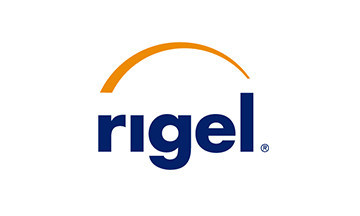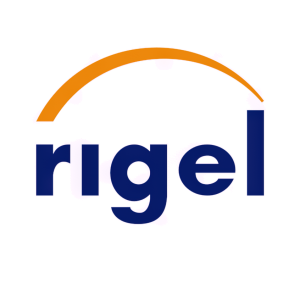Rigel Announces Post-hoc Data Analysis of TAVALISSE® in Adult Patients with Immune Thrombocytopenia Published in the British Journal of Haematology
On July 27, 2020, Rigel Pharmaceuticals (Nasdaq: RIGL) announced the publication of a post-hoc data analysis of TAVALISSE in the British Journal of Haematology. This analysis highlights a 78% response rate in adult patients with chronic immune thrombocytopenia (ITP) receiving TAVALISSE as a second-line therapy. Adverse events were manageable and consistent with previous reports. The findings suggest a potential shift in treatment paradigms, emphasizing the need for novel options in ITP management, as existing treatments are often insufficient for many patients.
- 78% of patients on TAVALISSE achieved a platelet count of at least 50,000/µL.
- The analysis indicates TAVALISSE may change treatment protocols for ITP.
- Adverse events were manageable, aligning with previous safety profiles.
- None.
SOUTH SAN FRANCISCO, Calif., July 27, 2020 /PRNewswire/ -- Rigel Pharmaceuticals, Inc. (Nasdaq: RIGL), today announced that a paper presenting a post-hoc data analysis of TAVALISSE® (fostamatinib disodium hexahydrate) tablets, as well as accompanying commentary have been published in the British Journal of Haematology. TAVALISSE, Rigel's oral spleen tyrosine kinase (SYK) inhibitor, is indicated for the treatment of adults with chronic immune thrombocytopenia (ITP) who have had an insufficient response to a previous treatment.
"This post-hoc data analysis represents a potential paradigm shift in the treatment of adult patients with ITP following the use of a first-line treatment, predominantly steroids," stated Ralph Boccia, MD, Center for Cancer and Blood Disorders, Bethesda, Maryland and first author of the paper. "ITP is a heterogeneous disease that requires an individualized treatment approach. This data analysis offers clinicians a better understanding of the role of TAVALISSE, with its novel mechanism of action, as an alternative treatment early in the course of the disease."
Rigel conducted the post-hoc data analysis, which has previously been presented, from a Phase 3 clinical program of TAVALISSE in adult patients with ITP. The published data analysis and accompanying commentary highlight the higher response rate and decrease in bleeding incidents in ITP patients receiving TAVALISSE as a second-line therapy. In this analysis, 32 patients received fostamatinib as a second-line therapy, of which,
About ITP
In patients with ITP (immune thrombocytopenia), the immune system attacks and destroys the body's own blood platelets, which play an active role in blood clotting and healing. Common symptoms of ITP include fatigue, excessive bruising and bleeding. People suffering with chronic ITP may live with an increased risk of severe bleeding events that can result in serious medical complications or even death. In addition to fostamatinib, current therapies for ITP include steroids, blood platelet production boosters (TPO-RAs) and splenectomy. However, not all patients respond to existing therapies. As a result, there remains a significant medical need for additional treatment options for patients with ITP.
About TAVALISSE
Indication
TAVALISSE® (fostamatinib disodium hexahydrate) tablets is indicated for the treatment of thrombocytopenia in adult patients with chronic immune thrombocytopenia (ITP) who have had an insufficient response to a previous treatment.
Important Safety Information
Warnings and Precautions
- Hypertension can occur with TAVALISSE treatment. Patients with pre-existing hypertension may be more susceptible to the hypertensive effects. Monitor blood pressure every 2 weeks until stable, then monthly, and adjust or initiate antihypertensive therapy for blood pressure control maintenance during therapy. If increased blood pressure persists, TAVALISSE interruption, reduction, or discontinuation may be required.
- Elevated liver function tests (LFTs), mainly ALT and AST, can occur with TAVALISSE. Monitor LFTs monthly during treatment. If ALT or AST increase to >3 x upper limit of normal, manage hepatotoxicity using TAVALISSE interruption, reduction, or discontinuation.
- Diarrhea occurred in
31% of patients and severe diarrhea occurred in1% of patients treated with TAVALISSE. Monitor patients for the development of diarrhea and manage using supportive care measures early after the onset of symptoms. If diarrhea becomes severe (≥Grade 3), interrupt, reduce dose or discontinue TAVALISSE. - Neutropenia occurred in
6% of patients treated with TAVALISSE; febrile neutropenia occurred in1% of patients. Monitor the ANC monthly and for infection during treatment. Manage toxicity with TAVALISSE interruption, reduction, or discontinuation. - TAVALISSE can cause fetal harm when administered to pregnant women. Advise pregnant women the potential risk to a fetus. Advise females of reproductive potential to use effective contraception during treatment and for at least 1 month after the last dose. Verify pregnancy status prior to initiating TAVALISSE. It is unknown if TAVALISSE or its metabolite is present in human milk. Because of the potential for serious adverse reactions in a breastfed child, advise a lactating woman not to breastfeed during TAVALISSE treatment and for at least 1 month after the last dose.
Drug Interactions
- Concomitant use of TAVALISSE with strong CYP3A4 inhibitors increases exposure to the major active metabolite of TAVALISSE (R406), which may increase the risk of adverse reactions. Monitor for toxicities that may require a reduction in TAVALISSE dose.
- It is not recommended to use TAVALISSE with strong CYP3A4 inducers, as concomitant use reduces exposure to R406.
- Concomitant use of TAVALISSE may increase concentrations of some CYP3A4 substrate drugs and may require a dose reduction of the CYP3A4 substrate drug.
- Concomitant use of TAVALISSE may increase concentrations of BCRP substrate drugs (eg, rosuvastatin) and P-Glycoprotein (P-gp) substrate drugs (eg, digoxin), which may require a dose reduction of the BCRP and P-gp substrate drug.
Adverse Reactions
- Serious adverse drug reactions in the ITP double-blind studies were febrile neutropenia, diarrhea, pneumonia, and hypertensive crisis, which occurred in
1% of TAVALISSE patients. In addition, severe adverse reactions occurred including dyspnea and hypertension (both2% ), neutropenia, arthralgia, chest pain, diarrhea, dizziness, nephrolithiasis, pain in extremity, toothache, syncope, and hypoxia (all1% ). - Common adverse reactions (≥
5% and more common than placebo) from FIT-1 and FIT-2 included: diarrhea, hypertension, nausea, dizziness, ALT and AST increased, respiratory infection, rash, abdominal pain, fatigue, chest pain, and neutropenia.
Please see www.TAVALISSE.com for full Prescribing Information.
To report side effects of prescription drugs to the FDA, visit www.fda.gov/medwatch or call 1-800-FDA-1088 (800-332-1088).
TAVALISSE and TAVLESSE are registered trademarks of Rigel Pharmaceuticals, Inc.
About Rigel (www.rigel.com)
Rigel Pharmaceuticals, Inc., is a biotechnology company dedicated to discovering, developing and providing novel small molecule drugs that significantly improve the lives of patients with immune and hematologic disorders, cancer and rare diseases. Rigel's pioneering research focuses on signaling pathways that are critical to disease mechanisms. The company's first FDA approved product is TAVALISSE® (fostamatinib disodium hexahydrate) tablets, the only oral spleen tyrosine kinase (SYK) inhibitor, for the treatment of adult patients with chronic immune thrombocytopenia who have had an insufficient response to a previous treatment. The product has been approved by the European Commission for the treatment of chronic immune thrombocytopenia in adult patients who are refractory to other treatments and is marketed in Europe under the name TAVLESSE® (fostamatinib). Fostamatinib is currently being studied in an investigator-sponsored trial conducted by Imperial College London for the treatment of COVID-19 pneumonia1.
Rigel's clinical programs include a Phase 3 study of fostamatinib in warm autoimmune hemolytic anemia (AIHA); a completed Phase 1 study of R8351, a proprietary molecule from its interleukin receptor associated kinase (IRAK) inhibitor program; and an ongoing Phase 1 study of R5521, a proprietary molecule from its receptor-interacting protein kinase (RIP) inhibitor program. In addition, Rigel has product candidates in clinical development with partners Aclaris Therapeutics, AstraZeneca, BerGenBio ASA, and Daiichi Sankyo.
1The product for this use or indication is investigational and has not been proven safe or effective by any regulatory authority.
Forward Looking Statements
This release contains forward-looking statements relating to, among other things, the potential benefit of using TAVALISSE in earlier lines of therapy, including as a second line therapy, for adult patients with ITP. Any statements contained in this press release that are not statements of historical fact may be deemed to be forward-looking statements. Words such as "potential," "may," "aim," "believe," "expects" and similar expressions are intended to identify these forward-looking statements. These forward-looking statements are based on Rigel's current expectations and inherently involve significant risks and uncertainties. Actual results and the timing of events could differ materially from those anticipated in such forward looking statements as a result of these risks and uncertainties, which include, without limitation, risks and uncertainties associated with the commercialization and marketing of TAVALISSE in the U.S. and TAVLESSE in Europe; risks that the FDA, European Medicines Agency (EMA) or other regulatory authorities may make adverse decisions regarding fostamatinib or any of Rigel's product candidates; risks that clinical trials may not be predictive of real-world results or of results in subsequent clinical trials; the availability of resources to develop Rigel's product candidates; market competition; as well as other risks detailed from time to time in Rigel's reports filed with the Securities and Exchange Commission, including its Annual Report on Form 10-K for the year ended December 31, 2019 and its Quarterly Report on Form 10-Q for the quarter ended March 31, 2020. In addition, the ongoing COVID-19 pandemic may result in further delays in Rigel's studies and trials, or impact Rigel's sales and ability to obtain supply of fostamatinib. Rigel does not undertake any obligation to update forward-looking statements and expressly disclaims any obligation or undertaking to release publicly any updates or revisions to any forward-looking statements contained herein.
IR Contact: David Burke
Phone: 650.624.1232
Email: dburke@rigel.com
![]() View original content to download multimedia:http://www.prnewswire.com/news-releases/rigel-announces-post-hoc-data-analysis-of-tavalisse-in-adult-patients-with-immune-thrombocytopenia-published-in-the-british-journal-of-haematology-301099965.html
View original content to download multimedia:http://www.prnewswire.com/news-releases/rigel-announces-post-hoc-data-analysis-of-tavalisse-in-adult-patients-with-immune-thrombocytopenia-published-in-the-british-journal-of-haematology-301099965.html
SOURCE Rigel Pharmaceuticals, Inc.
FAQ
What is the latest data analysis of TAVALISSE published by Rigel Pharmaceuticals?
How effective is TAVALISSE for patients with chronic immune thrombocytopenia?
What does the recent publication in the British Journal of Haematology indicate?
Are there any safety concerns regarding TAVALISSE?








